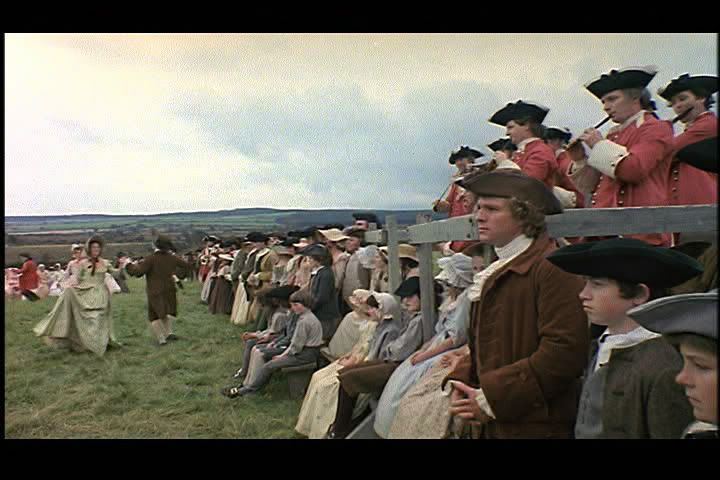
Here's our man. The one in the brown on the right with the blank look on his face. Yep, that's him. Redmond Barry/Barry Lyndon (played by Ryan O'Neil) is his name, and I would argue that he is a stand-in for all of us. This is quite a task, to be an everyman. The narrator and the characters in the story help to create the Barry persona by constantly pegging him as an upstart, a simpleton, a rogue. Everyone who meets Barry seems to have a distinct opinion of him. In this way, Kubrick sets up Barry as the everyman. But we look deeper and we see that our everyman is incredibly human, more complex than anyone gives him credit for. A case in point is Barry's relationship to the various father-figures that cross his path in life. Barry's emotional reliance on both the Captain Grogan and the Chevalier gives us a deeper look into a man who lives in a time where emotion is not expressed, where love and meaningful relationships are cast aside in the name of advancement and financial survival. Barry is not a saintly everyman. He is a sinner, a shameful one at times, but this adds to a fuller picture of our main character. No we don't identify with either Redmond Barry or Barry Lyndon, but we are given a well-drawn, fully-human character to stand-in for us in this time long past (to which we have no real connection otherwise).
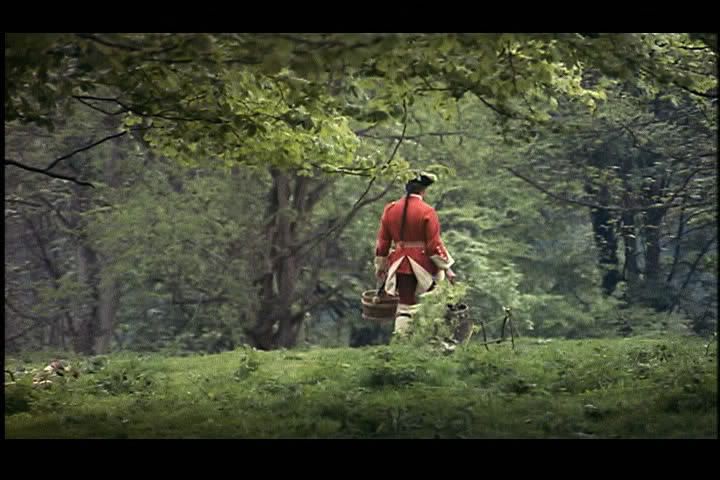
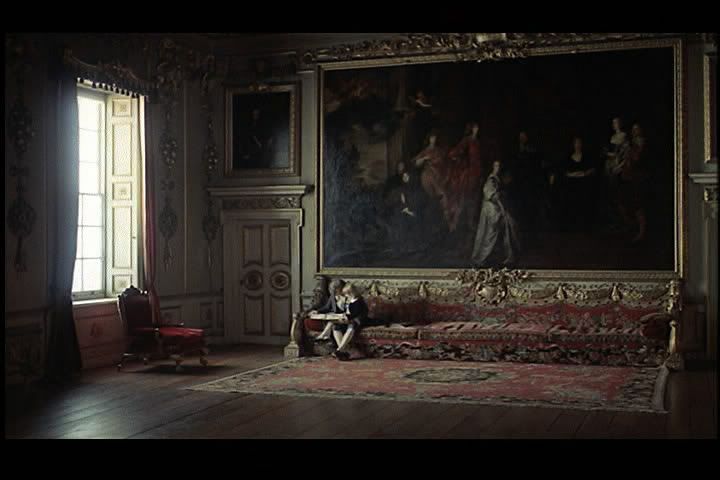
God, how small we are. How small we are in this beautiful world. This is what I think of when I watch Barry Lyndon. Whether indoors or outdoors, Kubrick frames his characters in such a way as to put them in their place with respect to their surroundings, not unlike the classical Japanese painters of old. Trees, castles, paintings tower over Barry and the other characters of this world. Huge, sweeping events, such as the Seven Years War, and socio-political struggles, a result of the wide chasm between the nobility and the peasantry, rage on around Barry, showing him no particular deference (as the main character of the story). The narrator seems to regard humanity's value in free will with some humor as he describes Barry's journey through life as a mash of good and bad luck. But even if we agree with the narrator, we look beyond the fate-driven thrust of Barry's life and we see more than one life, but a multitude of lives dwarfed by the beauty of things that will outlast them. Having moved beyond the main narrative, we see the beauty of nature and even the beauty of things humanly-created.
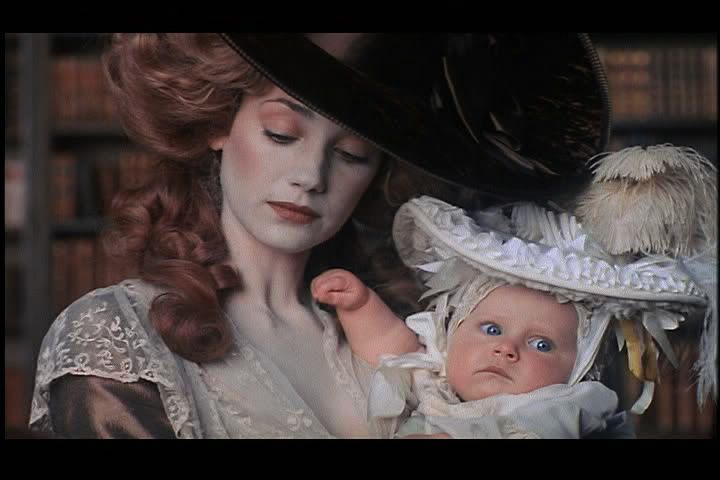
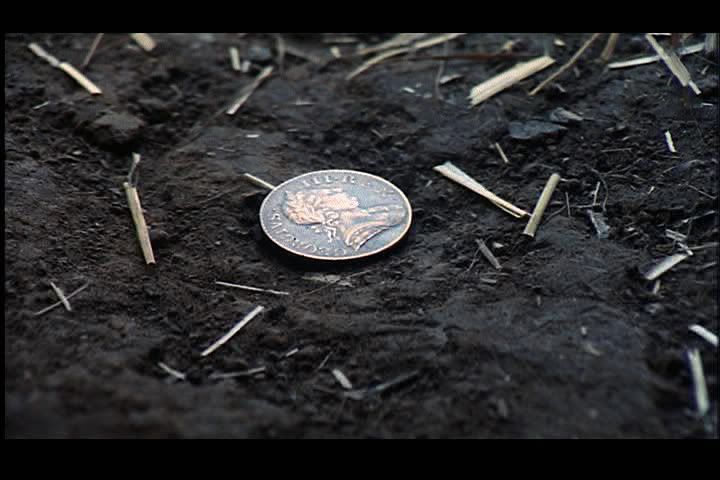
Then, we notice smaller things in the film, such as the intense, sideways glance of a baby. We notice the contrast between the sheen of a tossed coin and the dirt and hay of the ground, in the midst of a duel between main characters. We notice the birds chirping, and the wind that blows hard through the Irish farmlands, elements of nature expressing emotion when our characters cannot. We wait expectantly for the long, calculated zoom-outs, revealing more and more of the lush surroundings, and having gotten there, we revel in the close-ups of faces, drawn tight and impassionate, revealing nothing.
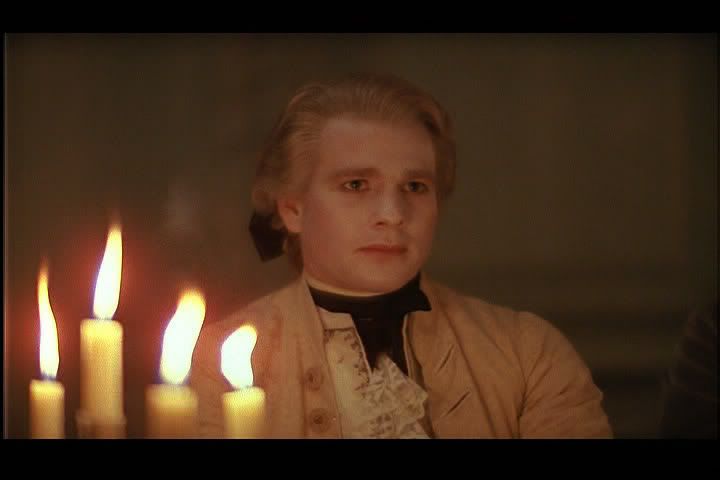
But then sometimes, we notice that there is something more behind these blank stares, and Kubrick shows us how love happens and how grief happens in the midst of these greater, eternal forces. When Barry and the Countess of Lyndon's lock gazes, Kubrick fans the flames by jumping back and forth between the same two shots of connection between them. Candles flicker in the lower left hand screen of both shots. Then there is the scene at the end when the Countess stares at a note she is about to sign (I won't say more than that) and she stares off into space for a moment, remembering all that has passed.
Even in the midst of these larger forces, we have people. But most of all, we have an incredibly poetic film, perhaps the greatest period piece ever made, and one of Kubrick's best.
3 comments:
This is, most days, my favorite Kubrick film. Growing up, Kubrick was my favorite director. At some point, I decided that his artisrty was great but that it did not justify his treatment of people who did not please him...but that is a discussion of a different sort, and one I'll have to have several beers drunk to get into at any rate!
I read your comment on my blog, and have responded there -- thanks for reading. That was a quick review that I had to throw together for a small paper, and I thought that since I almost never tell people whether or not they should see a film and that that one felt so worthy, that I would change things up.
..so you didn't like it...eh, what can you do?
I would agree with most things in this post -- I love that everyman quality to Ryan O'Neal's character and bearing, but I was confused about the love bit. I am never convinced watching this film that Barry knows how to love, not even his beloved Nora. Seduction and obsession seem more the key components, and the cinematography supports that.
That could make an interesting discussion topic, and a good way to make use of some of your screen shots...
My reasons for it usually being my favorite Kubrick, though, run more to his wicked sense of humor. You see, he is sadistic...and it shows in the excruciating pain of nearly every frame. Sadistic look at love (mocking, really), sadistic look at human affairs in general -- the survival of the fittest and man eating man -- and sadistic to his audience, whom he gives 3 hours' worth of this soap opera...
You see, if Marisa Benson's character had had a good friend like Pan, she never would've become a victim to the likes of Barry Lyndon.
You know, that's a good point about the love bit, but for some reason, I think that I'm likely to say that in Barry Lyndon's world seduction and obsession are the only ways in which love happens (which I guess, is to say that love probably doesn't happen). I should've been clearer in the post. No, Barry is not capable of love, but during that scene of interchange around the gambling table, that is how love happens in his world. You see what I'm getting at?
Mmm...I wouldn't call this film sadistic, really. The characters are very small in this world, but I find the tone of the film to be far from sadistic in its handling of the characters! I find the film rather moving, which I hope I conveyed in the post, because yeah, these characters are small, and I am small, and you are small in the grand scheme of things. I don't find that to be a cruel treatment at all! Yes, emotions are stunted in the movie, but as I say, the visuals more than pick up the slack for the characters' lack of personality and expression.
So there is a general arc to the way the events occur, yep. It's a play on the tragedy, since Barry Lyndon is by no means a great person in the world, but his downfall is brought about all the same. This is sad, inevitable, etc., but I wouldn't call it cruel or sadistic.
What is powerful about the film for me is the emotional impact of the visuals in spite of the inevitable (and pessimistic) narrative arc. It's a very beautiful film.
Haha, Pan is totally not a good friend to Ofelia (he doesn't treat her as a real person), and I would hope that he would stay far away from the Lady Lyndon.
The Lady Lyndon is her own worst enemy. Pan couldn't possibly be any worse...
"...during that scene of interchange around the gambling table, that is how love happens in his world. You see what I'm getting at?"
No. How so?
We are talking about the cuckolding scene?
Post a Comment